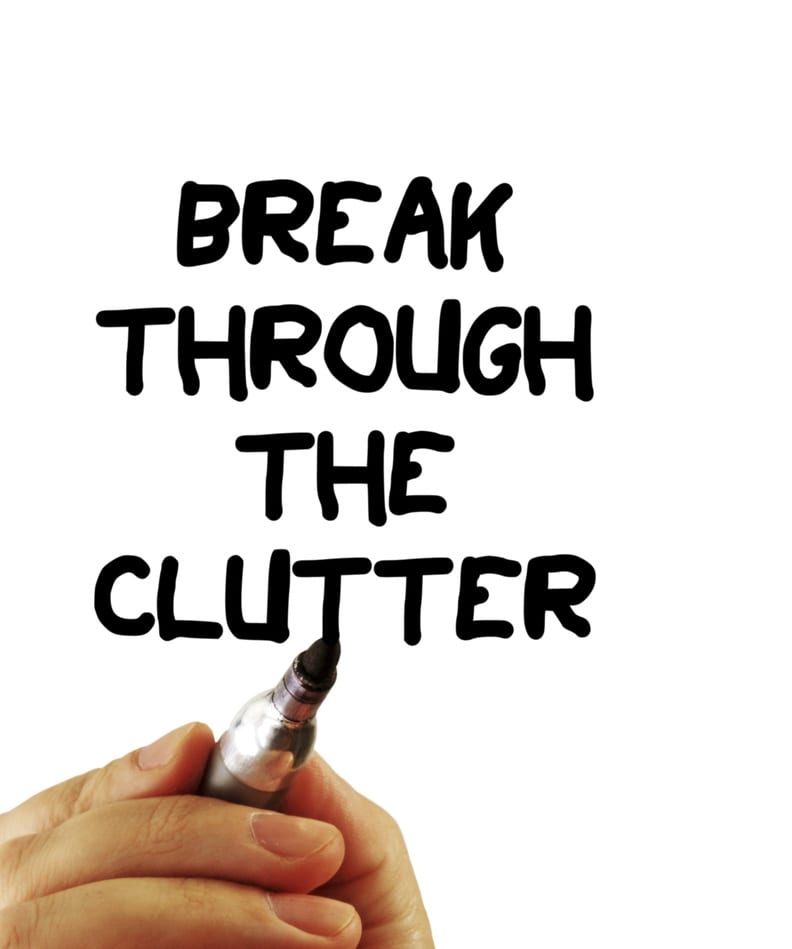The field of organization has changed a lot over the years. When I started my business over 20 years ago, a typical conversation looked like this:
Them: “What do you do?”
Me: “For work? I’m a professional organizer.”
Them: (Blank stare or puzzled expression) “Sorry, what did you say?”
Me: “I’m a professional organizer.”
Them: “Oh, so you organize meetings.” or “That’s great, you help workers to organize themselves.” or “What do you organize?”
Many awkward conversations later they might get it, but not really. Although my elevator pitch has become a bit more engaging since then, times have changed as well. The age of the McMansion lead to people buying more stuff to fill their monstrous size homes, hoarding shows became mainstream and suddenly people were aware that too much stuff could lead to some pretty bad situations, and things simply became cheaper and more easily accessible (Thank you Amazon!) so getting rid of stuff could not keep pace with acquisition.
Despite the evolution of the organization field, many people still don’t get it. “What’s a few piles?” or “At least I’m not a hoarder!” or “It just looks messy, I can always find what I need.” I hate to tell you, but organization matters! Hopefully, understanding the negative effects of clutter will be the organization inspiration you need. Perhaps you’ll finally do something about your clutter, take the time to get organized, and/or to learn to live with less. You will feel better and things will look better too!
Clutter is Distracting
– We have enough stimuli in our lives. The constant barrage of information from the internet, TV, and radio. 24-hour reachability from our smart phones. Communication from voice, text, email, facetime, social media, etc. As well as crowded streets and traffic. You need an escape from all that, yet when you live with clutter you have a constant reminder of unfinished projects, things you should be doing, and an overall feeling of being unsettled. Get rid of the clutter and enjoy the peacefulness of less stuff around you and more life inside you.
Clutter Brings Dirt
– I have been in countless homes where people ask me to remove my shoes before entering. I have no problem with the request and respect it when it is part of the culture or an attempt to keep floors clean. However, I’m perplexed by these same homeowners who live with piles of clutter, be it toys, paper, dirty dishes, clothes or other and have no clue how much dirt and germs are trapped in their piles. Whenever I work with a client to go through their clutter I typically find dust balls, dead bugs, old food, or at worst animal excrement (I know it’s gross, but comes with the job and is usually confined to garages and attics.). Clutter attracts dirt and germs into your home, so try to avoid it.
Clutter Costs Money
– Ever spent money on an item you know you have but could not find? Ever paid a penalty on something that needed to be paid or returned by a certain date and you either could not find it or forgot you had it? Rather than throwing money away on duplicate items, late fees, finance charges, or missed opportunities avoid clutter and save your money for more positive things (experiences, items you want or need, etc.)
Clutter Invites Clutter
– You know the routine. You put something down intending to deal with it, but you don’t. The item sits there and soon enough you or someone else puts another item they don’t know what to do with in the same spot. What starts off small slowly becomes big, to the point of which you don’t even know what’s there. And once your small clutter project becomes a big one you likely don’t want to deal with it yet you don’t want to see it either. A frustrating quanundrum, I know. Solution: Make sure items have a home and put them there as quickly as you can when you’re not using them. Alternatively, have a regular clean-up routine to get rid of things and return items to where they go. Eliminate the opportunity for clutter to accumulate and it won’t.
Clutter Impacts Kids
– Kids learn by example. If they are never taught to put things away or that items have a home and they need to put them there they can suffer the consequences as they grow. Losing schoolwork, missing deadlines, or problems on the job can all result when a child does not develop good organization skills. As a parent try to model good organization in the same way you teach reading, language development, manners, and respect. Without these skills life can be much harder for a child, and who wants that? Be your child’s organization inspiration!


